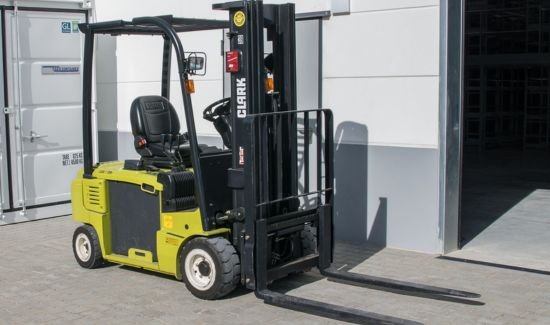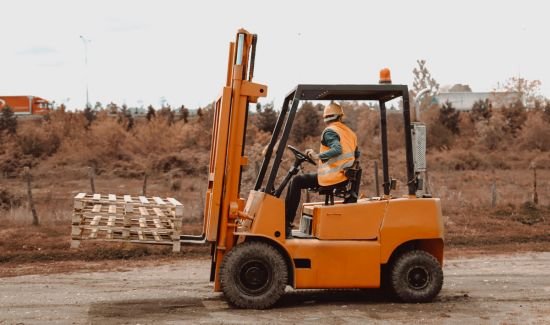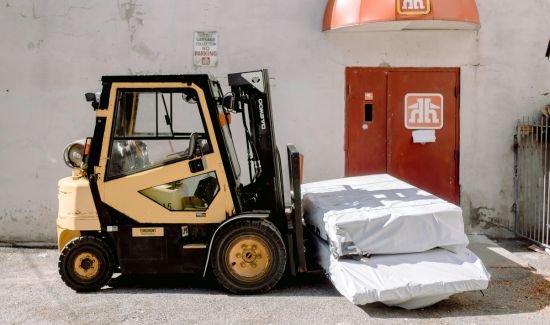
Forklift accidents are a serious problem. With more than 20,000 injuries reported each year, ensuring the safe operation of forklifts is very important. To prevent accidents and protect workers. The following important forklift safety tips will help keep your workplace safe and efficient. Additionally, as the weather changes, it’s important to also consider Outdoor Spring Safety Guidelines to ensure safety beyond indoor operations.
Table of Contents
1. Get Forklift Certification
Gair-certified forklift operators are a great safety concern. Certification ensures that operators are familiar with safe handling practices. Data shows that certified operators are involved in 30% fewer accidents. Investing in certification reduces risks and improves overall safety. The Occupational Safety and Health Administration (OSHA) provides specific regulations and guidelines for forklift operations in the U.S.
2. Wear the right clothes

Loose or bulky clothing can cause dangerous accidents near a forklift. Wearing fitted clothing and safety gear helps prevent entanglement and injury. Studies say that clothing-related hazards cause 25% of workplace injuries, so appropriate attire is important.
3. Understand the forklift class
It is very important to use the correct type of forklift for a specific job. Each class has its implementation. and improper use may cause safety hazards. Using the right classes can reduce the risk of accidents by up to 20%, improving safety and efficiency.
4. Inspect the condition of the forklift before each shift

Inspection before the start of each shift is important for safety. Checking the condition of the forklift helps identify potential issues. Regular inspections can reduce equipment-related accidents by up to 15%, which creates a safer work environment.
5. Maintain 360° Visibility
Limited visibility reduces the risk of collisions and accidents. Make sure you have a 360° view of the forklift to spot hazards. Research says improved visibility can reduce accident rates by up to 25%, increasing safety.
6. Never take extra people

Having additional passengers in a forklift is extremely dangerous. The extra weight can affect the vehicle’s stability and controllability. Studies have shown that 10% of forklift accidents are the result of unauthorized passengers. Therefore, it is important to follow preventive protocols.
7. Maintain the stability of the load
Unstable loads can cause the forklift to tip over. Ensure that the loads are balanced and secured. Proper load stability reduces the risk of tipping by up to 30%, which makes operations safer.
8. Drive at a reasonable speed

Speeding helps control and reduces the risk of accidents. Always follow the recommended speeds, especially in congested areas. Data says that reducing speed by 10% can reduce accident rates by up to 20%.
9. Refuel and recharge the forklift
Loss of fuel or battery power can disrupt operations and cause accidents. Regularly refuel or recharge the forklift to avoid unexpected downtime. Proper maintenance reduces operational disruptions and safety risks.
10. Park the forklift at the end of the shift

A forklift that is improperly parked may be a chance to other people. Always park the forklift inside the designated vicinity and turn off the engine. Proper parking reduces the risk of accidents involving unattended gadgets.
11. Do not modify the forklift
Modifying forklifts can compromise safety features. Always use forklifts according to the manufacturer’s design and approval. Modifications are a leading cause of equipment-related incidents, so it is important to keep forklifts unaltered.
12. Install Gas Detectors
Gas leaks can create hazardous conditions. Installing gas detectors while operating forklifts helps detect leaks early. Proper detection and response reduce the risk of exposure and ensure a safe working environment.
13. Take care of maintenance

Regular maintenance is vital for safe forklift operation. Follow the manufacturer’s maintenance schedule to prevent equipment failures. Studies say that well-maintained forklifts experience 20% fewer breakdowns and accidents.
14. Install Operator Restraint System
Operator restraint systems prevent injuries during sudden movements or accidents. Installing such systems enhances operator safety. Research says forklifts with restraints reduce injury rates by 25%.
15. Keep your equipment clean
Dirt can be the cause of equipment malfunctions and accidents. Regularly cleaning forklifts ensures their smooth and safe operation. Keeping the equipment clean ensures optimal performance and reduces the risk of operational issues.
16. Cross pedestrian areas gently
Extra caution is necessary when crossing pedestrian areas. Always look at pedestrians and signal your intentions. Clear communication and awareness reduce the risk of accidents.




